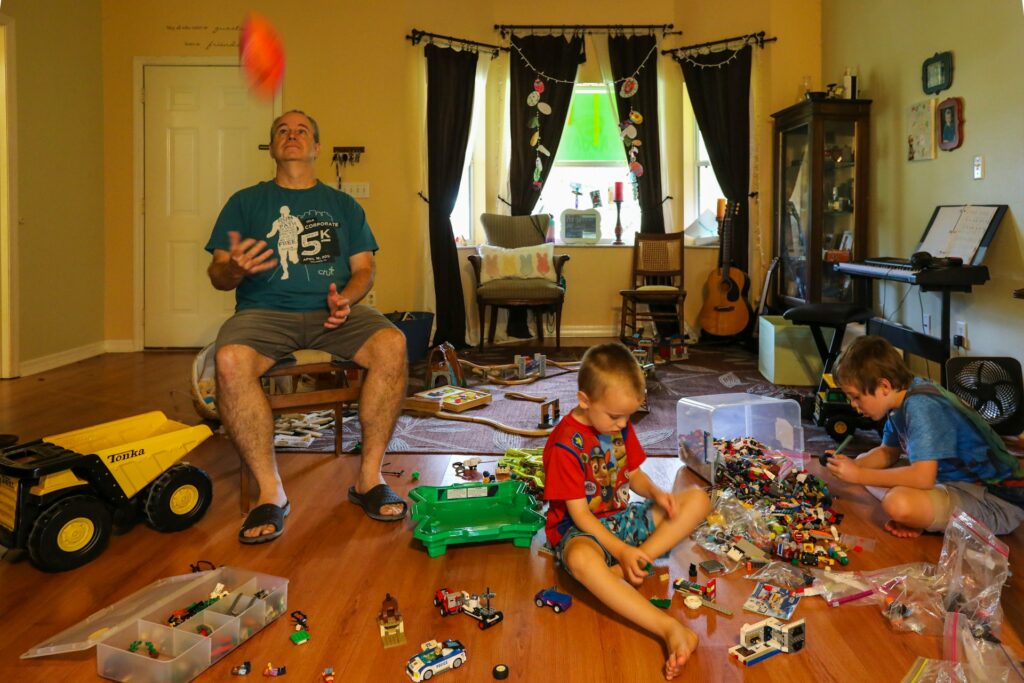As a dad who’s often running on little sleep and juggling the constant balancing act of family life, I know how challenging parenting can be. It’s easy to feel overwhelmed when you’re trying to figure out the best way to communicate, discipline, and connect with your kids, especially when each one seems to need something different. But what if the key to better parenting lies in understanding something fundamental about your child—something as simple (and complex) as their temperament?
I’ll admit, when I first heard about the idea of “temperament” in parenting, I wasn’t sure what to think. Isn’t temperament just another word for “personality”? Well, yes, in a way—but it’s more than that. Temperament refers to the inborn traits that influence how your child reacts to the world, how they behave, and how they interact with others. It’s like their natural blueprint, one that shapes the way they experience and navigate life.
Over time, I’ve realized that recognizing and understanding my kids’ temperaments has made a huge difference in how I approach parenting. I used to think that if I treated each of them the same way, I’d get the same results. But nothing could be further from the truth. Just like adults, kids come with their own set of natural tendencies, and these temperaments influence everything from how they handle frustration to how they interact with their peers. By learning to see and respect these differences, I can adjust my parenting style to better meet their needs and help them thrive.
So, what exactly is a child’s temperament? Simply put, it’s the unique way a child reacts to the world around them. It’s how they think, how they behave, and how they respond to different situations. These traits are typically present from birth, and they remain relatively stable throughout childhood. While every child’s temperament is different, it usually falls into one of several broad categories, which gives parents like me a framework to better understand their behaviors and responses.
For example, I have one child who is more easygoing and adaptable, while another tends to be more intense and sensitive. Knowing this has helped me adjust how I approach discipline and how I talk to each of them when they’re upset or stressed. If I treat the more sensitive one like the easygoing child, I risk overwhelming them, and if I treat the easygoing one the same as the sensitive one, I might not give them enough space to handle things in their own way. But by recognizing their temperaments and adjusting my responses, I can be more supportive and less likely to create unnecessary tension.
In fact, understanding their temperaments has even helped improve communication between us. For instance, I’ve learned that the more intense child needs extra time to process their emotions and is often more reactive to changes in routine. Instead of rushing them through moments of frustration, I’ve started giving them more space to calm down, knowing that forcing them to deal with it too quickly won’t be helpful. On the flip side, the easygoing child thrives on positive reinforcement and more freedom to make decisions, so I try to give them room to explore and take risks without over-controlling the situation.
One of the biggest takeaways I’ve gotten from paying attention to their temperaments is that there’s no one-size-fits-all parenting approach. What works for one child might not work for another, and that’s okay. It’s all about adapting to meet their needs, which, as a tired dad, might feel like a lot of work at times, but it’s so much more rewarding when I see the positive effects on our relationship. By recognizing and respecting their temperaments, I’m fostering a deeper connection with my kids and helping them develop the emotional and social skills they need as they grow.
I won’t lie—there are days when I wish my kids would just “get it” and follow the rules like I think they should. But when I stop and think about their temperaments, I realize that I need to approach each situation with patience and flexibility. Understanding that their reactions aren’t personal, but rather a reflection of their inherent traits, has made me a more empathetic and effective parent.
If you’re interested in diving deeper into this topic, I came across a great article that explains how decoding your child’s temperament can help you adapt your parenting style and build better relationships: Decoding Your Child’s Temperament: Adapting Parenting Styles for Better Relationships. It’s a useful read for any parent trying to navigate the complexities of raising kids with different temperaments.
In the end, the more I learn about my kids’ temperaments, the more I can parent in a way that truly works for them—not just me. And while I might be tired from all the balancing, it’s a lot easier to handle when I’m parenting with an understanding of who my kids truly are, at their core.



